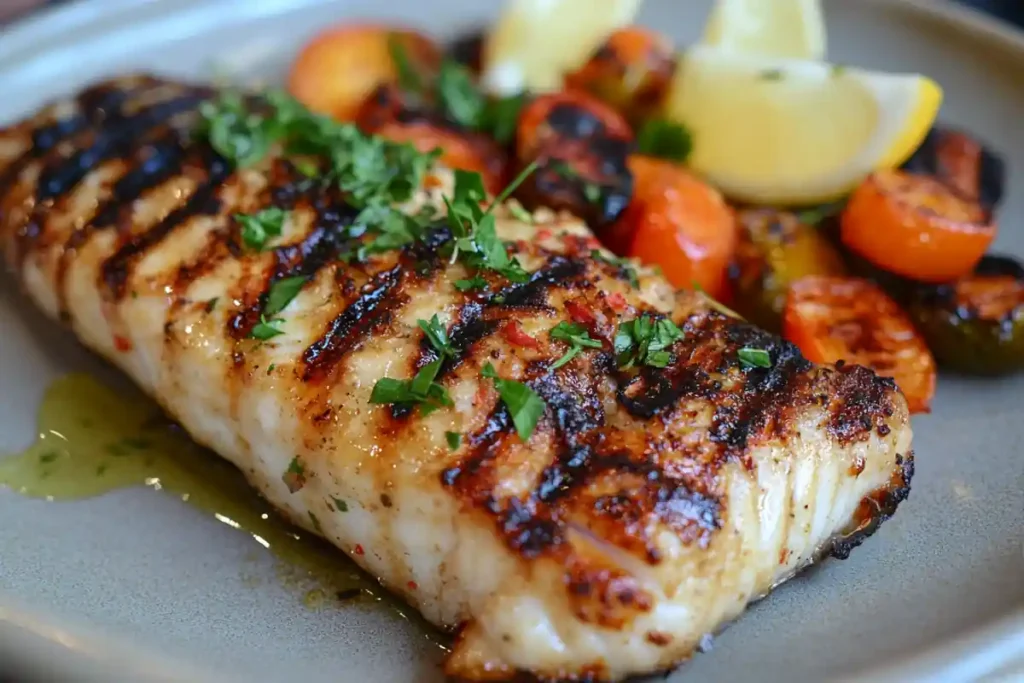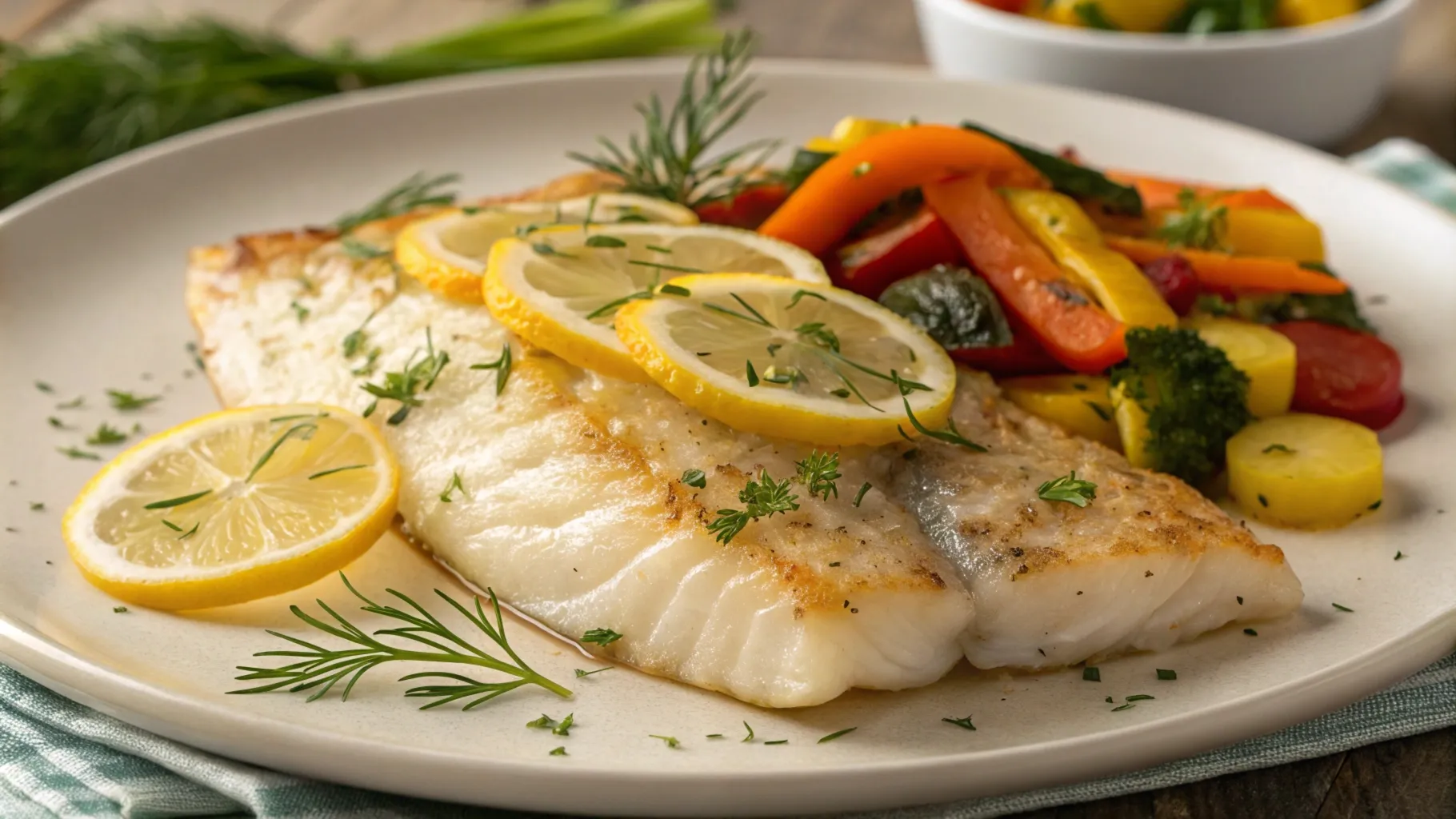Is Rockfish Good Eating Fish? This is a question many seafood enthusiasts ponder. Let’s explore the delicious versatility of rockfish, delving into its benefits, taste profile, and various cooking methods to determine if it’s the right choice for you.
If you’re curious about whether rockfish is good eating fish, you’re not alone. This fish has gained popularity among seafood enthusiasts for its mild flavor, firm texture, and high nutritional value. With over 70 species found primarily in the North Pacific, rockfish is known for its versatility in cooking and its healthy nutritional profile. In this comprehensive guide, we’ll explore the qualities that make rockfish an excellent choice for a variety of dishes, along with essential cooking tips to help you get the most out of this fish.
Rockfish is prized for its rich omega-3 fatty acids, lean protein, and low calorie content, which makes it an ideal choice for those looking to maintain a healthy diet. Learn more about omega-3 fatty acids and their benefits for overall health. Let’s dive deeper into why rockfish is a fantastic addition to your culinary repertoire.
For inspiration on how to prepare rockfish, check out our curated Rockfish Recipes, where we highlight dishes that range from baked classics to creative modern takes.
What is Rockfish?
Overview of Rockfish

Rockfish is a type of saltwater fish that is widely distributed along the North Pacific coast, from California to Alaska. It belongs to the genus Sebastes, which includes over 70 different species. Some common varieties include black rockfish, yelloweye rockfish, and vermilion rockfish. Despite the wide range of species, all rockfish share certain characteristics, such as firm, flaky flesh and a mild, slightly sweet flavor.
Rockfish is a favorite among chefs and home cooks alike because it can be prepared in many different ways, making it suitable for a wide range of dishes. Its versatility and ease of cooking have contributed to its popularity as a staple in many cuisines.
Nutritional Profile of Rockfish: Is Rockfish a Good Eating Fish?
Rockfish is an incredibly nutrient-dense fish that provides an abundance of essential nutrients. It is an excellent source of lean protein, vitamin D, and omega-3 fatty acids. These nutrients are vital for maintaining overall health and well-being. Here’s a closer look at the nutritional benefits of rockfish:
- Protein: Rockfish is rich in high-quality protein, which is crucial for building and repairing muscles.
- Omega-3 Fatty Acids: Omega-3s help reduce inflammation, support brain health, and promote cardiovascular health.
- Vitamin D: Rockfish provides a good amount of vitamin D, which is important for bone health and immune system support.
In addition, rockfish is low in saturated fat and calories, making it a healthy choice for those looking to maintain or lose weight.
If you’re interested in exploring other omega-3-rich seafood, consider trying Wahoo Fish Recipes, which share similar nutritional benefits.
Is Rockfish Good Eating Fish?

Taste and Texture of Rockfish
One of the most common questions people ask is, “What does rockfish taste like?” Rockfish has a mild, slightly sweet flavor that is similar to other white fish like cod or snapper. The texture is firm and flaky, making it a versatile ingredient for various cooking methods, such as baking, grilling, frying, or steaming.
Because of its mild flavor, rockfish can easily absorb the flavors of marinades, herbs, and spices, making it a great option for different types of dishes. Whether you prefer a simple preparation with lemon and herbs or a more elaborate dish with rich sauces, rockfish can adapt to your taste preferences.
Cooking Methods for Rockfish
Rockfish is incredibly versatile when it comes to cooking. Some popular methods include:
- Baking: Baking rockfish with herbs, lemon, and olive oil is one of the easiest and healthiest ways to prepare it. Simply season the fillets, place them on a baking sheet, and bake in the oven at 375°F for about 15-20 minutes until the flesh is opaque and flakes easily.
- Grilling: Grilling rockfish adds a smoky flavor that pairs well with its mild taste. Brush the fillets with olive oil, season them, and grill over medium heat for 4-5 minutes per side.
- Pan-Frying: For a crispy exterior, pan-frying rockfish in butter or oil works wonderfully. Cook the fillets for 3-4 minutes per side until golden brown.
- Steaming: Steaming is a gentle method that keeps rockfish moist and tender. Place the fillets in a steamer basket over boiling water and steam for 8-10 minutes or until fully cooked.
Explore our article on the Most Common Sauce for Fish, which includes options for enhancing its natural flavors.
Health Benefits of Rockfish: Is Rockfish Good Eating Fish?
Rich in Omega-3 Fatty Acids
Rockfish is an excellent source of omega-3 fatty acids, which are crucial for maintaining good health. Omega-3s have been shown to reduce inflammation, lower the risk of heart disease, and support brain health. Including rockfish in your diet is an effective way to boost your intake of these essential fats. For individuals looking to improve cardiovascular health, omega-3 fatty acids are especially beneficial in lowering triglycerides and blood pressure.
High-Quality Protein
Rockfish provides high-quality protein, which is essential for muscle growth and repair. Protein is a key macronutrient that plays an important role in building and maintaining muscle mass, especially for those who are active or looking to improve their fitness. With about 20 grams of protein per 3-ounce serving, rockfish is an excellent source of this vital nutrient.
Supports Weight Management
Because rockfish is low in calories and high in protein, it can help support weight management by keeping you feeling full longer. The combination of lean protein and healthy fats found in rockfish can aid in reducing hunger, making it easier to stick to a balanced diet. Additionally, rockfish is low in saturated fat, which makes it a heart-healthy choice for individuals aiming to manage their weight and improve overall health.
Rich in Essential Vitamins and Minerals
Rockfish is also rich in vitamins and minerals that contribute to overall health. It contains vitamin D, which is important for maintaining strong bones and a healthy immune system. It also provides vitamin B12, which is necessary for nerve function and the production of red blood cells. Additionally, rockfish is a good source of selenium, a mineral that acts as an antioxidant and helps protect the body from oxidative stress.
Comparing Rockfish to Other Popular Fish: Is Rockfish Good Eating Fish?
Rockfish vs. Cod
When comparing rockfish to cod, both fish are similar in terms of flavor and texture. They are both mild-tasting white fish with a flaky texture, making them versatile options for various recipes. However, rockfish tends to have a slightly firmer texture, which makes it better suited for grilling or frying compared to cod. In terms of nutrition, both fish are low in calories and provide a good source of protein and omega-3 fatty acids.
Rockfish vs. Snapper
Another popular comparison is between rockfish and snapper. Both fish have a mild flavor, but snapper tends to have a slightly sweeter taste compared to rockfish. Snapper is often used in more elaborate dishes, whereas rockfish is an excellent choice for simple preparations. Both fish are nutrient-rich, providing high-quality protein and omega-3 fatty acids.
Tips for Buying and Preparing Rockfish: Is Rockfish Good Eating Fish?

How to Select Fresh Rockfish
When buying rockfish, it’s important to choose fresh, high-quality fillets to ensure the best flavor and texture. Here are some tips for selecting fresh rockfish:
- Look for firm, shiny flesh that is not discolored.
- The fillets should have a mild, ocean-like aroma without any strong fishy smell.
- If buying whole rockfish, make sure the eyes are clear and the skin is shiny and free of blemishes.
Preparing Rockfish for Cooking
Before cooking, it’s essential to rinse the rockfish fillets under cold water and pat them dry with paper towels. This will help remove any excess moisture, allowing the fish to cook more evenly and develop a better texture. Rockfish can be marinated with herbs, citrus, or spices to enhance its flavor. However, due to its mild nature, avoid overpowering seasonings that might mask the natural taste of the fish.
Common Mistakes When Cooking Rockfish: Is Rockfish Good Eating Fish?
Overcooking the Fish
One of the most common mistakes people make when cooking rockfish is overcooking it. Rockfish is a delicate fish, and cooking it for too long can make it dry and tough. To avoid overcooking, cook rockfish just until it flakes easily with a fork. The internal temperature should reach 145°F for perfectly cooked fish.
Not Seasoning Enough
Rockfish has a mild flavor that benefits from a generous amount of seasoning. Whether you’re grilling, baking, or frying, make sure to season the fillets well with salt, pepper, and any herbs or spices you enjoy. Proper seasoning will help bring out the natural flavors of the fish.
Using High Heat
Rockfish should be cooked over medium heat to ensure that it cooks evenly without burning the exterior. Cooking at too high a temperature can cause the outside of the fish to overcook while the inside remains underdone. Medium heat allows the fish to cook through while developing a golden crust.
Delicious Rockfish Recipes to Try: Is Rockfish Good Eating Fish?
Baked Rockfish with Lemon and Herbs
Baked rockfish is one of the easiest and healthiest ways to enjoy this delicious fish. Here’s a simple recipe that you can try at home:
Ingredients:
- 4 rockfish fillets
- 2 tablespoons olive oil
- Juice of 1 lemon
- 1 teaspoon dried thyme
- 1 teaspoon dried oregano
- Salt and pepper to taste
Instructions:
- Preheat the oven to 375°F.
- Place the rockfish fillets on a baking sheet lined with parchment paper.
- Drizzle olive oil and lemon juice over the fillets.
- Sprinkle thyme, oregano, salt, and pepper evenly over each fillet.
- Bake for 15-20 minutes, or until the fish is cooked through and flakes easily with a fork.
Grilled Rockfish Tacos
Grilled rockfish makes for delicious tacos that are perfect for a casual meal. Here’s a simple recipe for grilled rockfish tacos:
Ingredients:
- 4 rockfish fillets
- 1 tablespoon olive oil
- 1 teaspoon ground cumin
- 1 teaspoon paprika
- 8 small tortillas
- 1 cup shredded cabbage
- 1/2 cup salsa
- 1/4 cup sour cream
- Lime wedges for serving
Instructions:
- Preheat the grill to medium heat.
- Brush the fillets with olive oil and season with cumin, paprika, salt, and pepper.
- Grill the fillets for 4-5 minutes per side, or until cooked through.
- Assemble the tacos by placing the grilled fish in tortillas and topping with cabbage, salsa, and sour cream. Serve with lime wedges.
Frequently Asked Questions (FAQs): Is Rockfish Good Eating Fish?
What Does Rockfish Taste Like?
Rockfish has a mild, slightly sweet flavor that is similar to other white fish like cod or snapper. Its flavor makes it a versatile choice for many different dishes.
Is Rockfish a High Quality Fish?
Yes, rockfish is considered a high-quality fish due to its firm texture, mild flavor, and high nutritional value. It is an excellent source of lean protein and omega-3 fatty acids, which are important for overall health.
Are Rockfish Healthy to Eat?
Absolutely. Rockfish is a healthy fish to eat because it is rich in essential nutrients like omega-3 fatty acids, vitamin D, and protein. It is also low in saturated fat and calories, making it a heart-healthy option.
Does Rockfish Have a Lot of Mercury?
Rockfish generally has moderate mercury levels, which means it should be eaten in moderation, especially by pregnant women and young children. It is still a healthy choice when consumed as part of a balanced diet.
Conclusion: Is Rockfish Good Eating Fish?
So, is rockfish good eating fish? The answer is a resounding yes. With its mild flavor, firm texture, and high nutritional value, rockfish is a versatile and delicious choice for anyone looking to enjoy a healthy seafood meal. Whether you’re baking, grilling, or steaming, rockfish can be prepared in a variety of ways that suit different tastes and preferences. Its numerous health benefits, including being a rich source of omega-3 fatty acids and high-quality protein, make it an excellent option for maintaining a balanced diet.
We hope this comprehensive guide has provided you with valuable insights into the benefits of rockfish and how to prepare it in delicious ways. Be sure to try some of the recipes provided and explore more seafood dishes on our website for additional inspiration.

